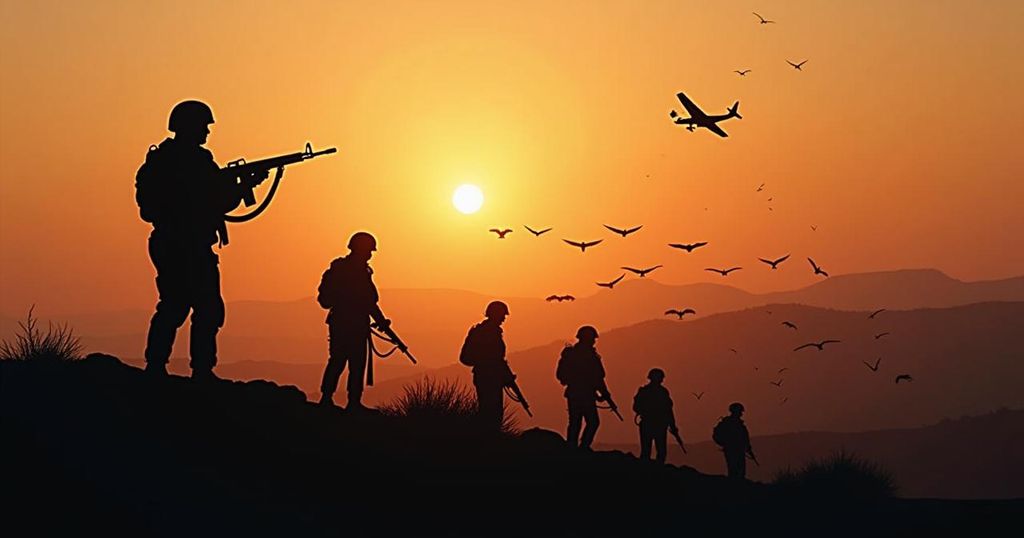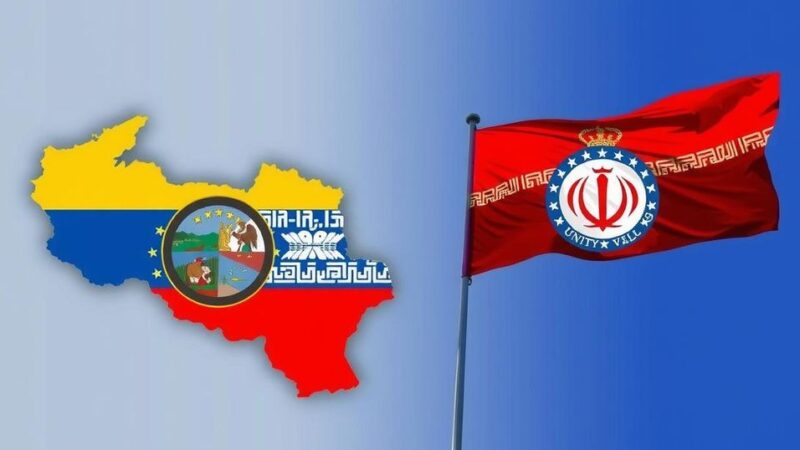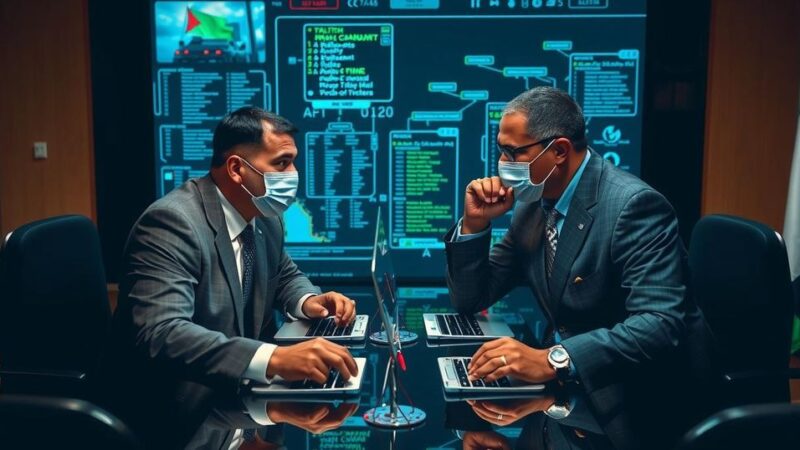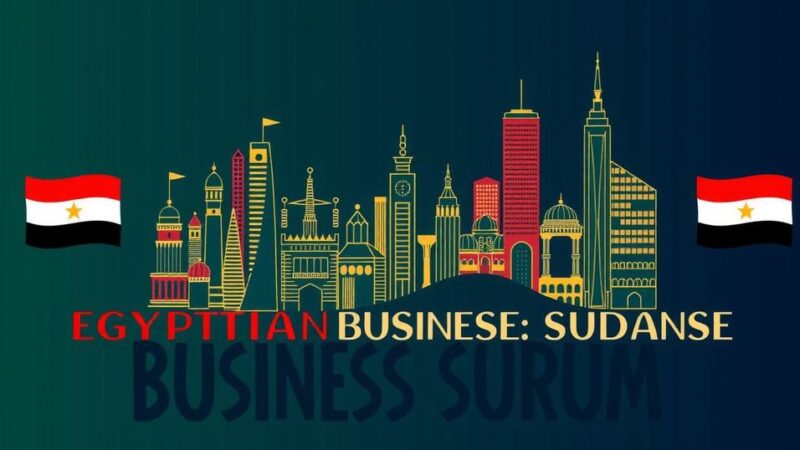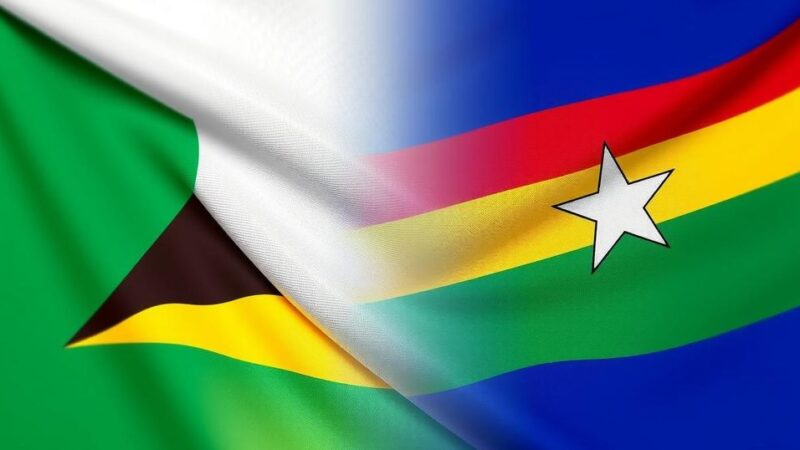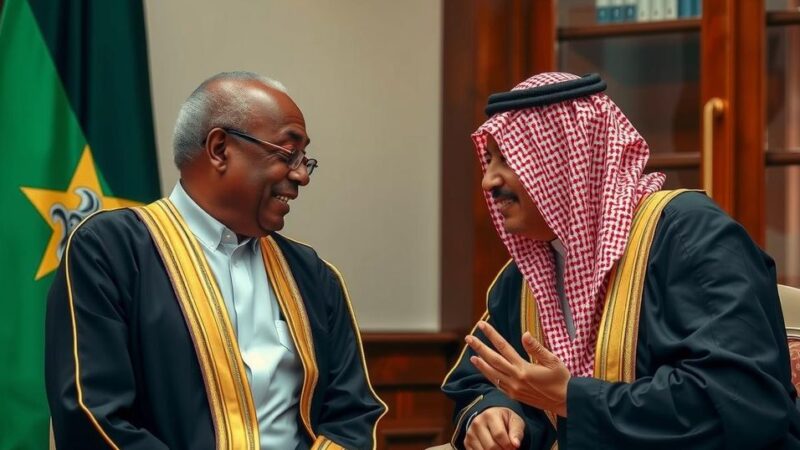Israeli troops are battling Hezbollah in Lebanon following Iran’s missile barrage that targeted Israel, raising fears of a wider conflict in the Middle East. The violence has resulted in significant casualties and destruction, with Israeli operations in Gaza concurrently intensifying. Prime Minister Netanyahu has warned of repercussions against Iran for its attacks, highlighting the precarious nature of the ongoing hostilities.
Israeli troops engaged in combat with Hezbollah militants in Lebanon recently amidst escalating tensions following Iran’s launch of at least 180 missiles into Israel. This series of missile attacks signals a significant intensification of the longstanding conflict between Iran and Israel, raising concerns of a broader regional war. The Israeli military intercepted several missiles aimed at key locations including Jerusalem, and called for civilian protection measures as air raid sirens reverberated across the country. Meanwhile, in Tehran, government supporters celebrated the missile strikes with demonstrations against Israel. In the early hours following the missile attacks, the Israeli military confirmed it was targeting Hezbollah positions in Lebanon. Reports indicate that Israeli airstrikes on Lebanese territory were met with retaliatory fire from Hezbollah forces, resulting in clashes near the Israel-Lebanon border. This conflict has emerged alongside ongoing Israeli military operations in Gaza, which have resulted in substantial casualties, including many women and children. In Gaza, Israeli air and ground assaults have intensified with operations reportedly causing at least 51 fatalities in Khan Younis alone, exacerbating an already dire humanitarian situation. The violence has drawn attention to the potential for expanding conflict in the Middle East involving various stakeholders, including Iran, supportive of both Hezbollah and Hamas, which continue to target Israeli territories. Israeli officials, including Prime Minister Benjamin Netanyahu, have vowed retaliation against Iran for its missile strike. Netanyahu stated, “Iran made a big mistake tonight and it will pay for it.” The ongoing exchange of hostilities, including missile strikes and air assaults, has escalated tensions and compelled international observers to contemplate the implications for stability in the region with military assets being dispatched by the United States in support of Israel. As the humanitarian toll mounts, with thousands displaced, calls for a cease-fire grow louder. Frequent clashes and airstrikes, particularly in densely populated areas, highlight the brutal realities of the conflict and the urgent need for diplomatic interventions to deter further escalation.
The current escalation of the conflict in the Middle East stems from longstanding tensions between Israel and Iran, particularly through proxy groups like Hezbollah and Hamas. Iran’s recent missile attack is viewed as a notable escalation in retaliation for previous Israeli strikes that targeted Iranian and Hezbollah personnel. This conflict has drawn in international attention, compelling nations to reassess their positions in the face of possible broadening warfare that threatens regional stability. The humanitarian crisis resulting from ongoing military operations in Gaza and Lebanon raises significant ethical concerns as civilian casualties accumulate amidst militant engagements.
In conclusion, the conflict between Israeli forces and Hezbollah, spurred by Iranian missile attacks, marks a critical juncture in the ongoing strife in the Middle East. The likelihood of expanded hostilities is pronounced as both Israel and Iran engage in retaliatory measures. The humanitarian implications of the conflict are dire, necessitating urgent international attention to prevent further loss of life and escalation of violence.
Original Source: apnews.com
